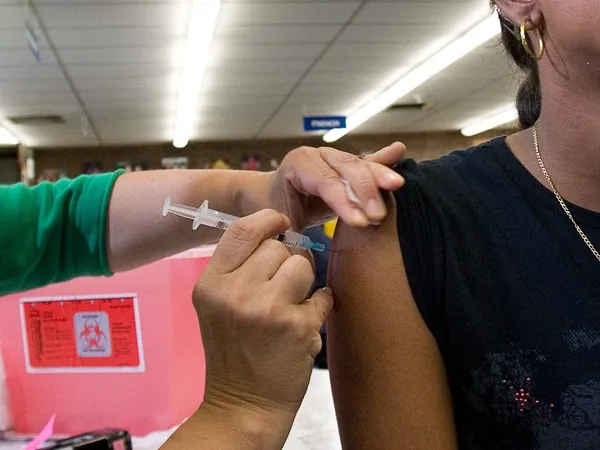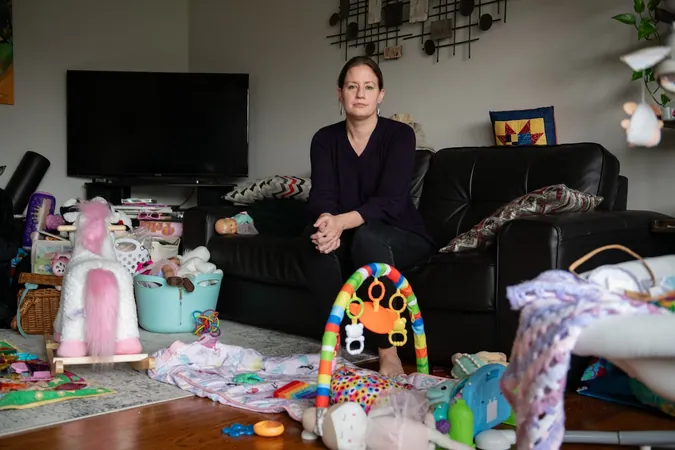
Alarming Rise in HPV-Related Cancers Amidst Lagging Vaccination Rates in Canada
2024-11-21
Author: William
Introduction
Cancers linked to human papillomavirus (HPV) are on the rise in Canada, particularly in Ontario, where vaccination rates remain troublingly low, according to a national medical women's organization. Dr. Chloe Rozon, an Ottawa-based resident physician in obstetrics and gynecology and member of the Federation of Medical Women of Canada's HPV task force, has spotlighted these concerning trends.
Vaccination Rates
Despite what Dr. Rozon describes as "unprecedented catch-up efforts" following early pandemic-related declines, only 68.5% of 17-year-olds in Ontario are vaccinated against HPV. This figure is dismally below the World Health Organization's target of immunizing 90% of 15-year-old girls by 2030 as part of a global initiative aimed at eradicating cervical cancer.
Urgent Need for Improvement
The need for improvement is urgent. Statistics reveal that vaccination rates are even lower among older Canadians, particularly among males, where only 23% of males aged 18-24 have received the vaccine compared to 68% of their female counterparts, according to a 2021 immunization coverage survey.
International Comparisons
International comparisons highlight the crisis facing Canada. In Australia, higher vaccination rates correlate with significantly lower prevalence of cervical cancer. For instance, Scotland has also experienced a dramatic decline in cervical cancer rates following the implementation of robust HPV vaccination campaigns.
Increasing Cervical Cancer Rates
Alarmingly, data indicates that cervical cancer rates in Canada have increased by 3.7% annually over the past decade. In 2023 alone, an estimated 1,550 new cases of cervical cancer were diagnosed, and approximately 400 people lost their lives to this preventable disease. "The greatest way to prevent cervical cancer is through vaccination," Dr. Rozon emphasized.
Surge in HPV-Related Cancers
Moreover, cancers of the mouth and throat associated with HPV have also surged, affecting males 4.5 times more than females. Shockingly, one-third of HPV-related cancers in Canada occur in males, underlining the critical need for increased awareness and vaccination among both genders.
Call for Expanded Vaccine Eligibility
The Federation of Medical Women of Canada is insisting on expanded vaccine eligibility, urging that publicly funded vaccines should be available to anyone who missed school vaccination programs. They are also advocating for regulatory changes to allow pharmacists and dentists to administer and prescribe the HPV vaccine, as only physicians can currently do so.
Need for Public Awareness
To elevate the vaccination rates, the organization emphasizes the necessity of comprehensive public health messaging. Surveys indicate a worrying gap in public knowledge about HPV and the associated vaccine's availability to both boys and girls.
Government Response and Future Risks
Echoing these concerns, the Ontario government's spokesperson has acknowledged ongoing efforts to increase vaccination rates through enhanced school-based initiatives in recent years. However, experts warn that without immediate action, thousands of Canadians could develop preventable cancers in the future.
Conclusion
As the medical community rallies for action, the Federation of Medical Women of Canada insists, "If we do not act to improve these immunization rates, thousands of Ontarians will develop cancers in the future, which could have been prevented by vaccination." This pressing issue calls for public awareness and mobilization to push for better health outcomes. The stakes are too high to ignore; timely vaccinations could mean the difference between life and death for countless individuals facing HPV-related illnesses.









 Brasil (PT)
Brasil (PT)
 Canada (EN)
Canada (EN)
 Chile (ES)
Chile (ES)
 España (ES)
España (ES)
 France (FR)
France (FR)
 Hong Kong (EN)
Hong Kong (EN)
 Italia (IT)
Italia (IT)
 日本 (JA)
日本 (JA)
 Magyarország (HU)
Magyarország (HU)
 Norge (NO)
Norge (NO)
 Polska (PL)
Polska (PL)
 Schweiz (DE)
Schweiz (DE)
 Singapore (EN)
Singapore (EN)
 Sverige (SV)
Sverige (SV)
 Suomi (FI)
Suomi (FI)
 Türkiye (TR)
Türkiye (TR)